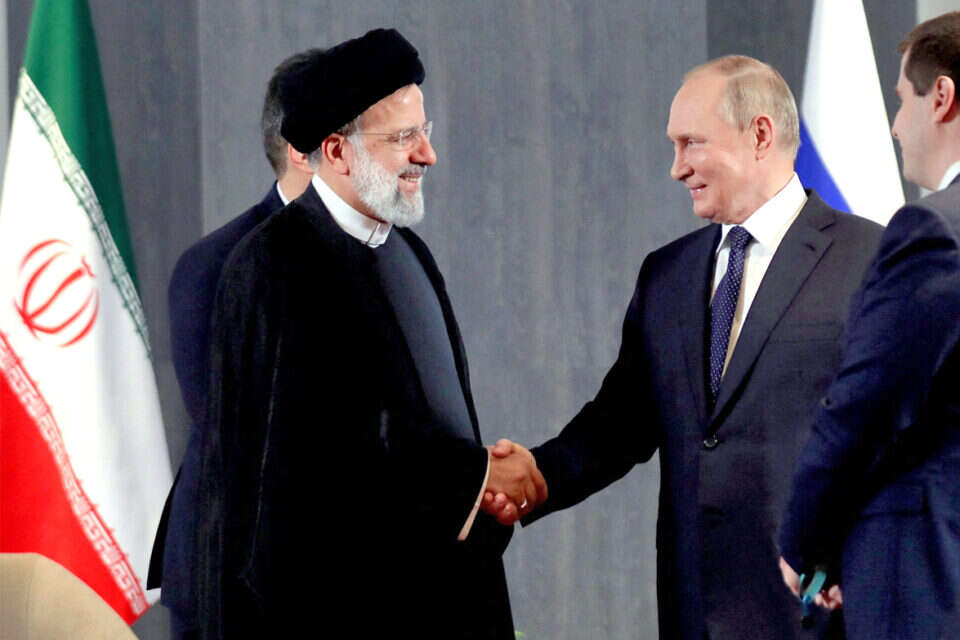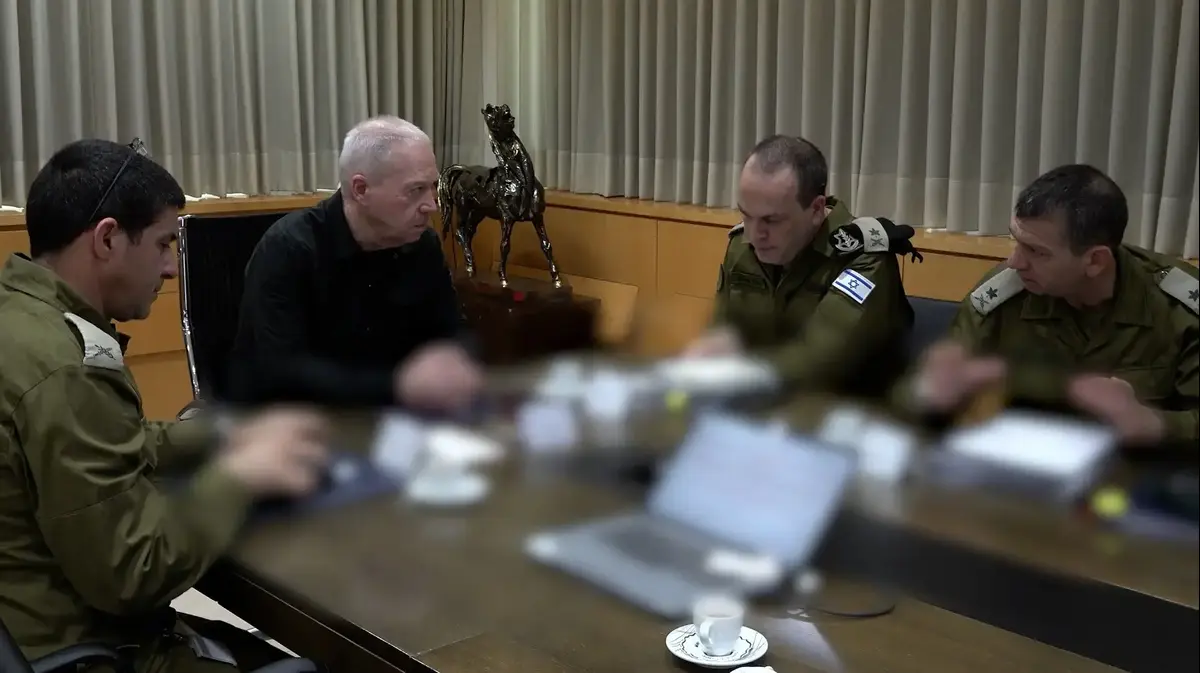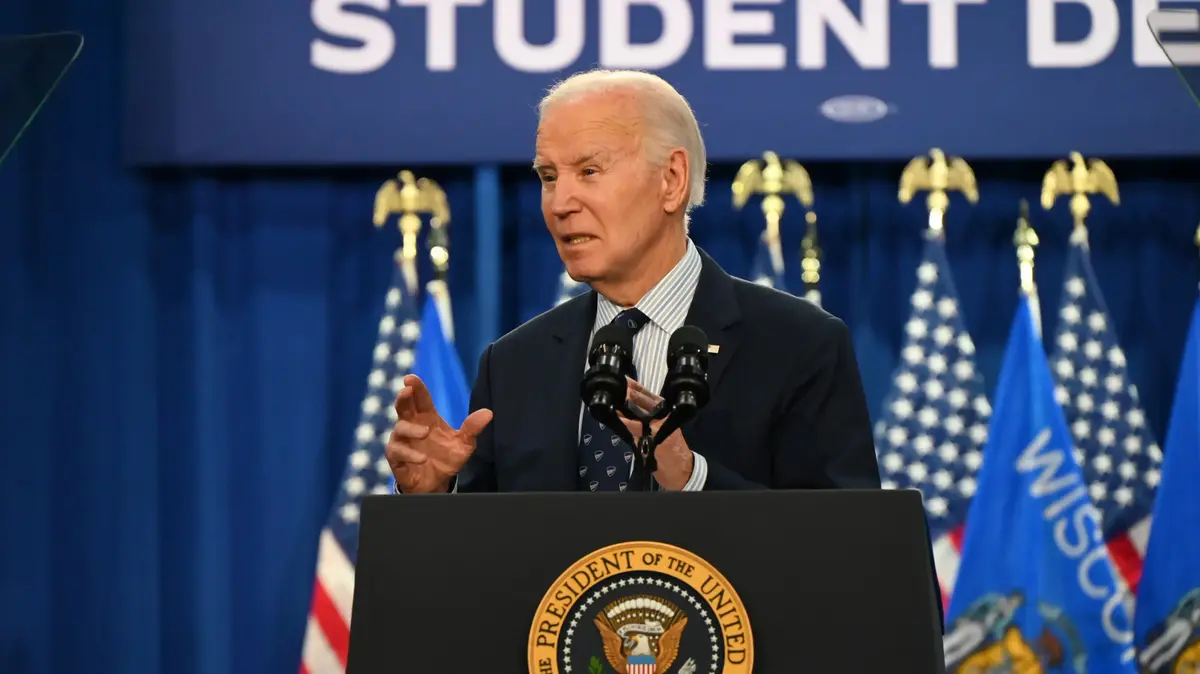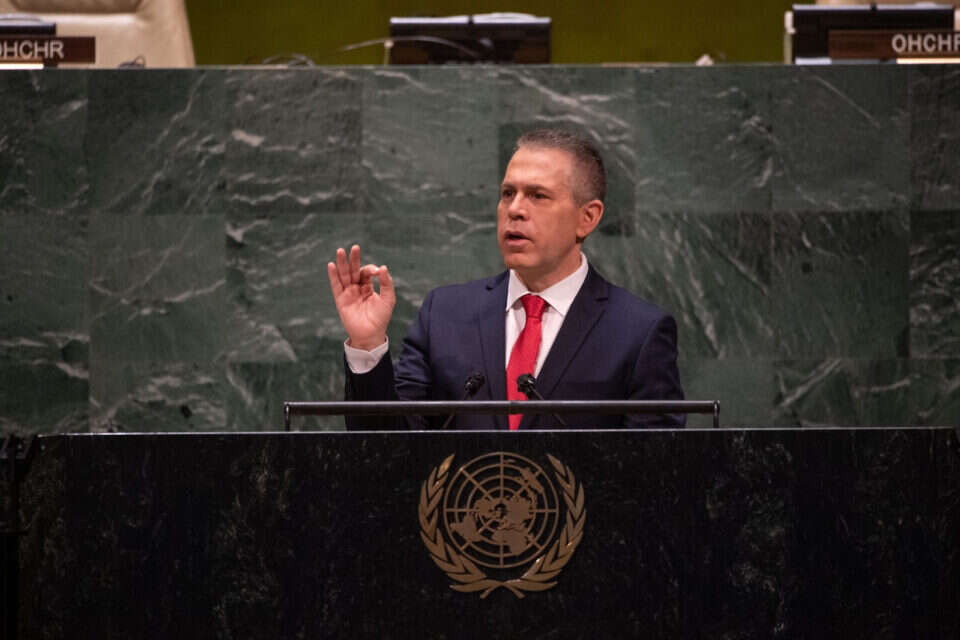Alongside the multitude of Israeli tactical successes on the front of fighting Palestinian terrorism in Israel, and beyond the achievement of restoring stability on the northern border with the expected signing of the maritime border agreement, we are in the midst of a geopolitical development whose consequences are extremely significant: the competition between East and West to change the world order.
Social Networks
The Russian-Iranian alliance, the development of the campaign in Ukraine and the recent publication of the American national security strategy are three major developments.
Although superficially they are not related to each other and do not endanger Israel, in practice they may challenge Israeli national security and must be prepared for them.
Weapons and oil from Iran to Russia
The first development is Tehran's support for Moscow.
Iran equips Russia with precision weapons systems and, according to the White House, is also directly involved through the attack on Ukraine by Iranian aircraft operators stationed in the Crimea.
In the internal arena, Iran exports more than a million barrels of oil per day, which is enough to sustain its economy (subsistence and not prosperity).
Contrary to the strong impression on social media, the regime deals decisively and effectively with the "hijab protest" demonstrations.
Oil field in Iran // Photo: Reuters
The second development is the campaign in Ukraine.
Russia declares a state of emergency in the west of the country, renews the pressure on Kyiv, but continues to be embroiled in a failed war.
Moscow is determined to continue the campaign until victory.
Therefore, along with faltering reserve mobilization, it is forced to transfer forces and weapons from Syria to the Ukrainian front.
Apparently, development is not necessarily negative, but it will immediately be explained how it could become such.
The third development is the U.S. National Security Strategy document. According to the U.S. document, China is the main destabilizer of the world order and the most important threat to U.S. national security; the countries of the Middle East should handle their own problems, while the U.S. will support from afar;
The US is committed to preventing a nuclear Iran situation, but will not use military force to change regimes; technology is a national security resource.
Fragments of an Iranian drone that hit Kiev in a Russian attack, photo: AP
These developments oblige Israel to address, as they lie, below the noise threshold, negative meanings.
The risk is not in the short term, it is not tangible and noisy, such as the terrorist threat in Israel. However, precisely because the risk does not require an immediate tactical response (at which we excel), it is worth discussing. The possible risks in the long term must be analyzed, along with leveraging and taking advantage of the various opportunities.
The tactical threat may come from the direction of Syria.
Although Russia will not give up its presence in the arena due to its access to the Mediterranean Sea and its foothold in the Middle East, the thinning of forces there and the growing commitment to Iran may increase cooperation between Tehran and Moscow on Syrian soil.
Unlike in the past, this time Russia may actively support Iran's efforts to establish itself in Syria, or at the very least give it a tailwind - for example, through the protection of Iranian assets in Syria in a way that would disrupt Israeli freedom of action, with indirect assistance for the transfer of advanced Iranian military equipment to Syria, and may even take A response that would go beyond the familiar condemnations of attacks attributed to Israel.
an attack in Syria attributed to the IDF,
The strategic threat may come from the direction of the Iranian nuclear program.
As time passes, the chance of reaching an agreement decreases.
The leader of Iran refuses to approve the draft agreement presented to him in its current form, as long as the West does not completely abandon the investigation of the "open files" (the discovery of undeclared enriched uranium at three sites, which is considered a violation of the Treaty against the Proliferation of Nuclear Weapons).
And despite the economic relief he expects from the agreement, Iran's leader still does not recognize its usefulness.
Unlike in the past, when the leader had to "drink the cup of poison" (as he put it), the current reality really does not require such a compromise.
After all, even if he returns to the nuclear agreement, it is clear to everyone that the economic transformations will not bring about a significant change in Iran.
There is no incentive to enter into an agreement
The reason for this involves recent developments.
Iran's practical support for the war in Ukraine has resulted in a new wave of sanctions against it.
The instability in the streets of Iran and the temporary nature of the nuclear agreement, even if it is renewed, will not encourage Western investors to invest in the country.
On the other hand, Iran survives the sanctions.
And now, in light of the aid to Russia, it will receive a disciplinary reinforcement of the Russian-Chinese backing, which gives it an economic-security safety net vis-a-vis the West.
Iranian female protesters in the latest wave of protests in Iran, photo: IPA
In view of the American perception of Iran as a local Middle Eastern problem, a dangerous situation has arisen in which Iran continues to accelerate the nuclear project without interruption and without any obstacle to delay or limit it.
The leader of Iran may come to the conclusion that the sanctions are ineffective, and American military action against his regime is less likely in the current era.
In this state of affairs, assuming the regime does not fall soon, we may find ourselves in the reality of a nuclear Iran as part of an eastern alliance of nuclear powers.
Technology trade risk
A longer-term, but no less important, strategic threat stems from growing American competition in China.
Placing the issue of trade in technology and R&D (research and development) as a sensitive security issue endangers the main economic engine in Israel - the trade in technology and knowledge.
Israel, as a start-up country, may be forced to decide on the export policy of technology and research to its US competitors. What is currently perceived as trade and legitimate business, may in the near future be perceived as a value position that is not settled and regulated with the interests of the USA.
The permutations of the new world order are knocking on the door of Israeli national security.
In the current global competition, Israel has a clear interest in the victory of the West.
Sitting on the fence is also a form of taking a stand, and it should be reconsidered.
Russia's success as a result of Iranian aid will strengthen the Iranian-Russian bond and commitment.
This success means strengthening the Islamic Republic in a way that will allow it to realize its two strategic goals: nuclear capabilities and regional dominance.
The author is a general (res.), former head of the National Security Agency and currently director of the Institute for National Security Studies INSS
were we wrong
We will fix it!
If you found an error in the article, we would appreciate it if you shared it with us








